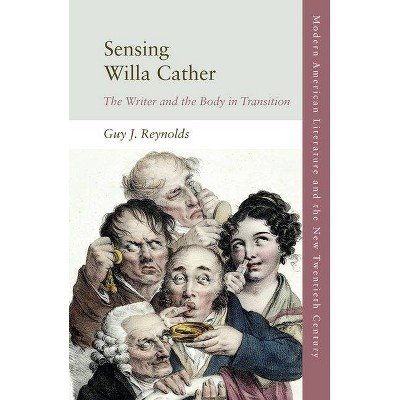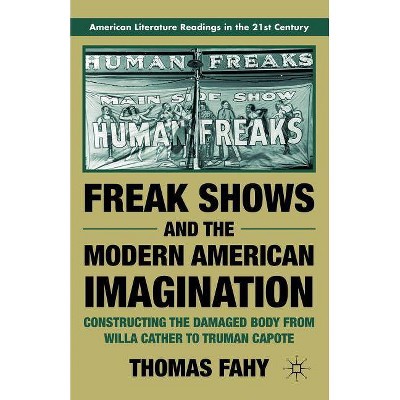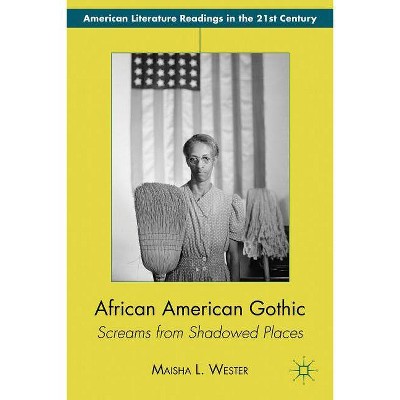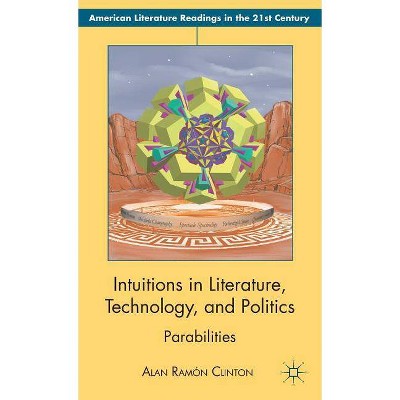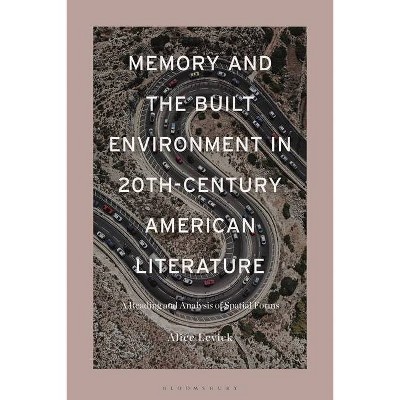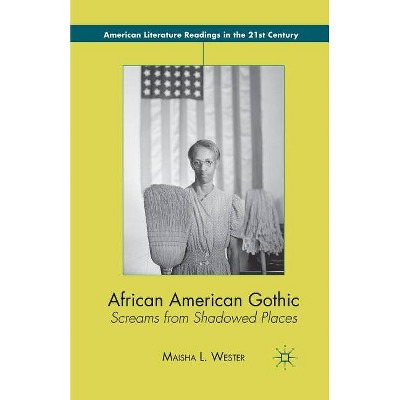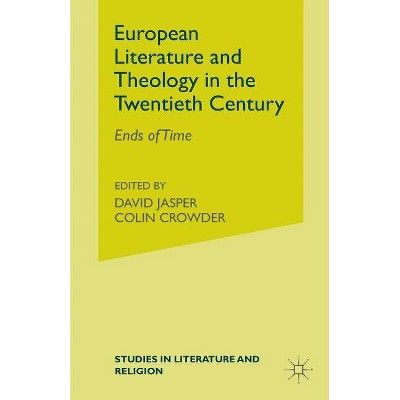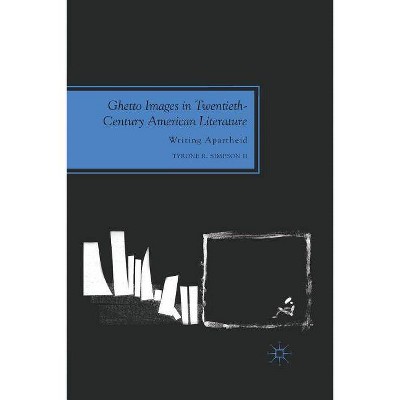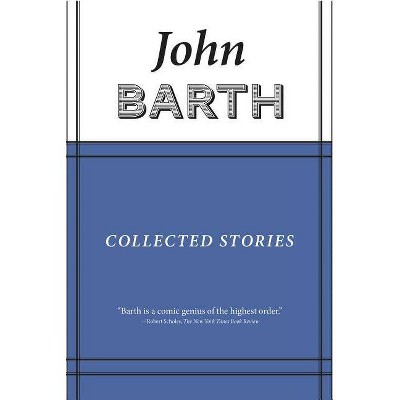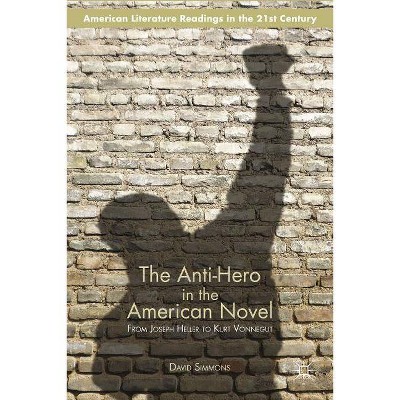Writing Nature in Cold War American Literature - (Modern American Literature and the New Twentieth Century) by Sarah Daw (Hardcover)
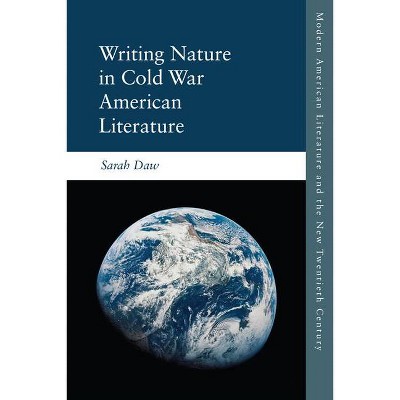
Similar Products
Products of same category from the store
AllProduct info
<p/><br></br><p><b> About the Book </b></p></br></br><p>Compelling analyses of the function and representation of Nature in a wide range of Cold War fiction and poetry.</p><p/><br></br><p><b> Book Synopsis </b></p></br></br><p><strong>First book-length ecocritical study of Cold War American literature</strong></p> <p>Compelling analyses of the function and representation of Nature in a wide range of Cold War fiction and poetry by authors including Paul Bowles, J. D. Salinger, Jack Kerouac, Allen Ginsberg and Mary McCarthy reveals the prevalence of portrayals of Nature as an infinite, interdependent system in American literature written between 1945 and 1971. </p> <p>Daw astutely highlights the Cold War's often overlooked role in environmental history and argues that Rachel Carson's <em>Silent Spring</em> (1962) can be considered as part of a trend of increasingly ecological depictions of Nature in literature written after 1945. By exploring the most recent developments in the field of ecocriticism, the book is embedded within current ecocritical debates concerning the Anthropocene and anthropogenic climate change. </p> <p><strong>Key Features</strong></p> <ul> <li>Contains five case studies of six Cold War writers: Paul Bowles, Peggy Pond Church, J. D. Salinger, Jack Kerouac, Allen Ginsberg and Mary McCarthy </li> <li>Offers an in-depth exploration of the influences behind each writer's presentation of Nature</li> <li>Shows the Cold War to be a time of seismic change in the human's relationship to the environment, and demonstrates the degree to which this inflects Cold War literature</li> <li>Engages with the most recent developments in the field of ecocriticism, which drive the study's analytical methodology and embed the book within current ecocritical debates </li></ul><p/><br></br><p><b> From the Back Cover </b></p></br></br>'Writing Nature in Cold War American Literature redraws ecocritical thinking. The atomic age, it argues, changed ways of seeing "Nature". Throughout, Daw weaves delicate, though challenging, analyses of how "ecological thought" is at play across a number of Cold War American writers not usually discussed by ecocritics.' Nick Selby, University of East Anglia First book-length ecocritical study of Cold War American literature Compelling analyses of the function and representation of Nature in a wide range of Cold War fiction and poetry by authors including Paul Bowles, J. D. Salinger, Jack Kerouac, Allen Ginsberg and Mary McCarthy reveal the prevalence of portrayals of Nature as an infinite, interdependent system in American literature written between 1945 and 1971. Sarah Daw astutely highlights the Cold War's often overlooked role in environmental history, arguing that Rachel Carson's Silent Spring (1962) can be considered as part of a trend of increasingly ecological depictions of Nature in literature written after 1945. By exploring the most recent developments in the field of ecocriticism, the book is embedded within current ecocritical debates concerning the Anthropocene and anthropogenic climate change. Sarah Daw is Vice-Chancellor's Fellow at the University of Bristol. Cover image: view of Earth taken from the Apollo 8 spacecraft (c) akg/Stocktrek Images Cover design: [EUP logo] edinburghuniversitypress.com ISBN 978-1-4744-3002-9 [PPC] ISBN 978-1-4744-3003-6 [cover] Barcode<p/><br></br><p><b> About the Author </b></p></br></br><p>Sarah Daw is Lecturer in English at the University of Bristol. She is the author of <i>Writing Nature in Cold War American Literature</i> (EUP 2018), and numerous articles, including 'The 'dark ecology' of the Bomb: Writing the Nuclear as a part of Nature in Cold War American Literature', <i>Dark Nature: Anti-Pastoral Essays in American Literature and Culture</i>, ed. Richard J. Schneider (Lanham: Rowman & Littlefield, 2016), '"If he chooses to speak from these roots" Entanglement and Uncertainty in Charles Olson's "Quantum" Ecopoetics', <i>Green Letters: Studies in Ecocriticism</i> 23.4 (2019), 350-366, 'The Art and Science of Form: Muriel Rukeyser, Charles Olson and F. O. Matthiessen at Mid-century', <i>Palgrave Handbook of Twentieth and Twenty-First Century Science and Literature</i>, ed. Priscilla Wald.<p>
Price History
Price Archive shows prices from various stores, lets you see history and find the cheapest. There is no actual sale on the website. For all support, inquiry and suggestion messagescommunication@pricearchive.us
